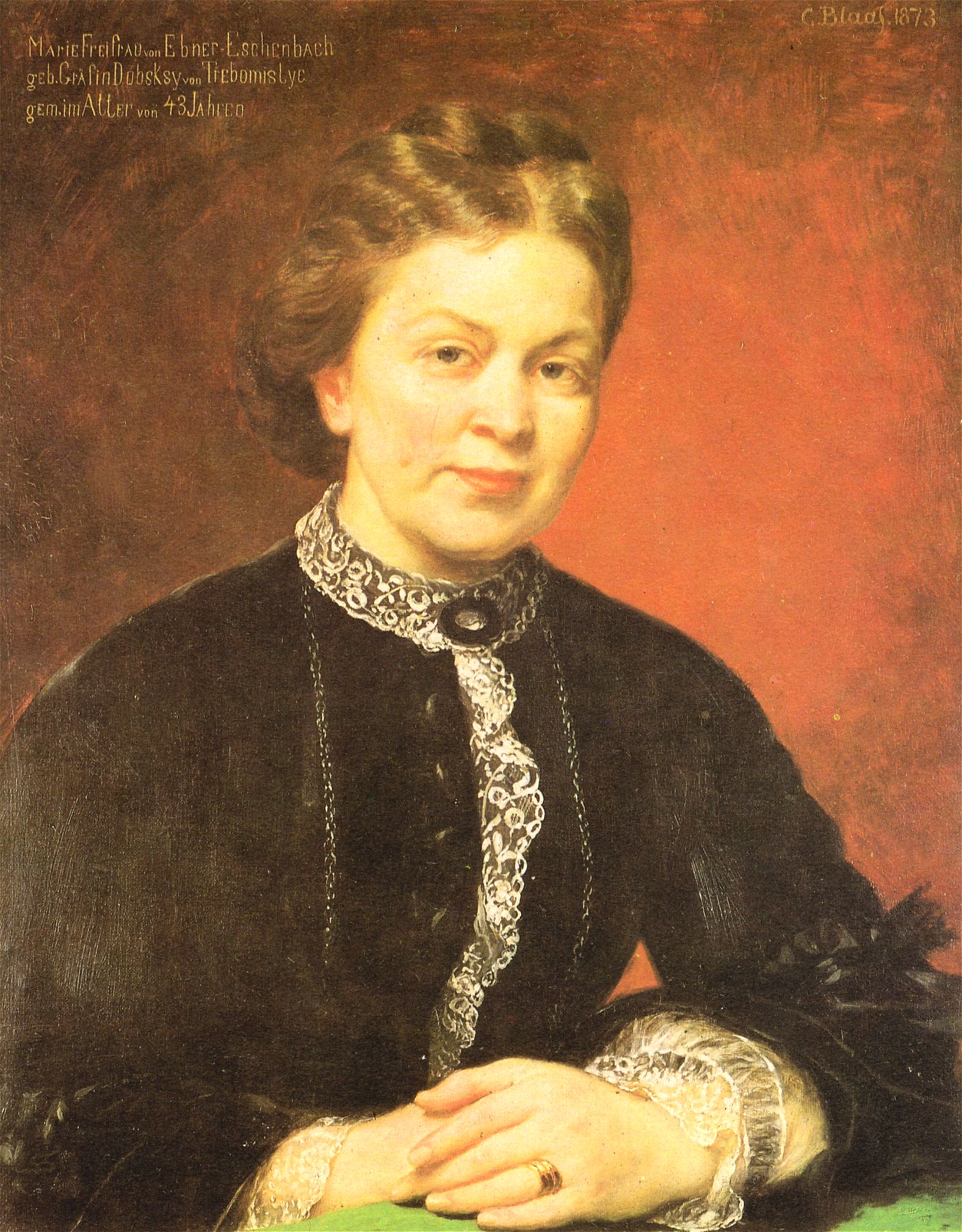“A defeat borne with pride is also a victory.”
Source: Aphorisms (1880/1893), p. 84.
Baroness Marie von Ebner-Eschenbach was an Austrian writer. Noted for her excellent psychological novels, she is regarded as one of the most important German-language writers of the latter portion of the 19th century. Wikipedia

“A defeat borne with pride is also a victory.”
Source: Aphorisms (1880/1893), p. 84.
“Be the first to say something obvious and achieve immortality.”
Sag etwas, das sich von selbst versteht, zum ersten Mal und du bist unsterblich.
Source: Aphorisms (1880/1893), p. 19.
Gemeinverständlich, das heißt: auch den Gemeinen verständlich, und heißt überdies nicht selten: den Nicht Gemeinen ungenießbar.
Source: Aphorisms (1880/1893), p. 38.
“An understanding of beauty and enthusiasm for it are one and the same.”
Verständnis des Schönen und Begeisterung für das Schöne sind Eins.
Source: Aphorisms (1880/1893), p. 31.
Die glücklichen Pessimisten! Welche Freude empfinden sie, so oft sie bewiesen haben, daß es keine Freude gibt.
Source: Aphorisms (1880/1893), p. 19.
“Indifference of every kind is reprehensible, even indifference towards one’s self.”
Source: Aphorisms (1880/1893), p. 82.
Dilettanten haben nicht einmal in einer sekundären Kunst etwas Bleibendes geleistet, sich aber verdient gemacht um die höchste aller Wissenschaften, die Philosophie. Den Beweis dafür liefern: Montaigne, La Rochefoucauld, Vauvenargues.
Source: Aphorisms (1880/1893), p. 55.
“Those who know nothing must believe everything.”
Wer nichts weiß, muss alles glauben.
Source: Aphorisms (1880/1893), p. 21, Aphorismen, in: Schriften, vol. 1, Paetel, Berlin 1893.
“Blessed is trust, for it blesses both those who have it to give and those who receive it.”
Source: Aphorisms (1880/1893), p. 29.
“Spurned pity can turn into cruelty just as spurned love turns into hate.”
Verschmähtes Erbarmen kann sich in Grausamkeit verwandeln, wie verschmähte Liebe in Haß.
Source: Aphorisms (1880/1893), p. 33.
“One thought cannot awake without awakening others.”
Ein Gedanke kann nicht erwachen, ohne andere zu wecken.
Aphorisms (1880/1893)